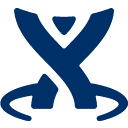



WHAT IS ETCLC?
To accomplish the goals of the Advancing American Kidney Health initiative, the Centers for Medicare & Medicaid Innovation created the End Stage Renal Disease (ESRD) Treatment Choices (ETC) payment model to encourage preventative kidney care, home dialysis, and kidney transplants. In support of the ETC payment model, the Centers for Medicare & Medicaid Services in collaboration with the Health Resources & Services Administration has established the ESRD Treatment Choices Learning Collaborative (ETCLC) with the goal of improving the quality of life of people with end stage renal disease through kidney transplantation.
National Aims
A Collaborative Built for a Broad Community The ETCLC will bring transplant centers, Organ Procurement Organizations (OPOs), donor hospitals, patients, and donor families together to reduce the disparity in performance among OPOs and transplant centers with the goal of increasing kidney recoveries by OPOs and utilization of kidneys by transplant centers | Supported by National Leaders ETCLC members are supported by a National Faculty and Leadership Coordinating Council made up of thought leaders and organizations in the field of organ recovery and transplant |
Dedicated QI Coaches Leveraging a Tested Change Package ETCLC members are guided by a national network of quality improvement coaches who lead QI Teams to identify best and promising practices that drive recovery and utilization performance and spread these practices throughout the kidney transplant community using the Kidney Donation and Utilization Change Package. | Amplifying the Patient and Family Voice People on dialysis, transplant recipients, and donor family members have an important voice and role in the ETCLC by identifying patient and family education needs around organ donation and transplant. |
 ISG Playbook
ISG Playbook APIs
APIs






